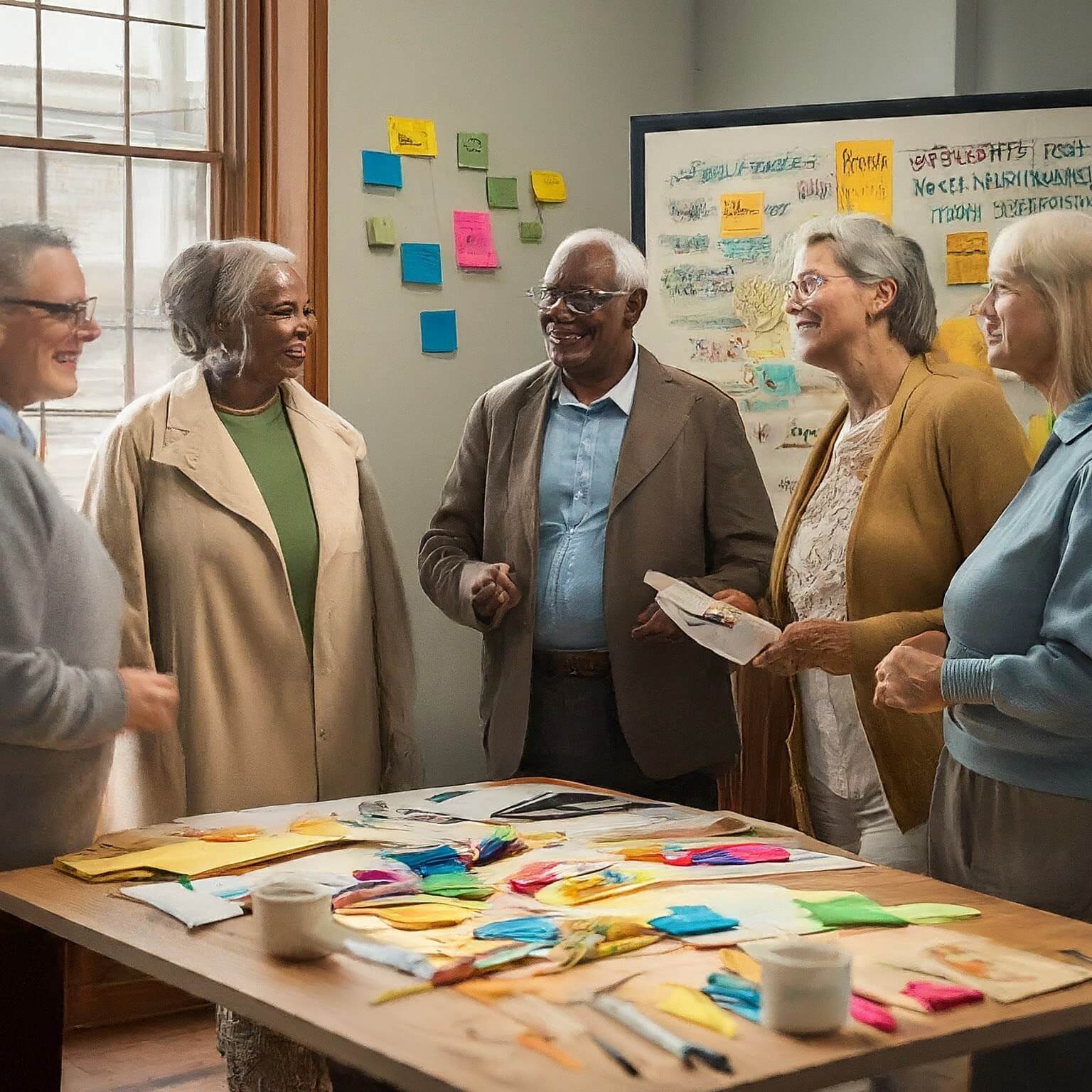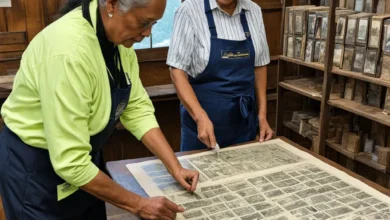Creating a Fulfilling Community Engagement Plan for Retirement

Are you looking forward to your golden years? Retirement can be an exciting time filled with new opportunities and experiences. One key to a happy retirement is staying active and connected through community engagement. Let’s explore how you can create a fulfilling community engagement plan that will make your retirement years truly golden!
Did you know that retirees who stay socially active are 60% less likely to develop dementia than those who are isolated? This fascinating statistic highlights just one of the many benefits of community engagement in retirement. As you enter this new chapter of life, it’s crucial to stay connected, active, and involved in your community. Not only will it keep you physically and mentally sharp, but it will also bring a sense of purpose and joy to your daily life.
Why Community Engagement Matters in Retirement
Retirement is more than just a break from work – it’s a chance to rediscover yourself and make a positive impact on the world around you. Here’s why community engagement should be a top priority in your retirement plan:
- Health Benefits: Staying active in your community can boost both your physical and mental health. Regular social interactions can lower stress levels, improve cognitive function, and even strengthen your immune system.
- Social Connections: Engaging with others helps prevent loneliness and isolation, which are common challenges for retirees. Building new friendships and maintaining existing relationships can significantly enhance your quality of life.
- Sense of Purpose: Contributing to your community gives you a reason to get up in the morning. It provides a sense of accomplishment and fulfillment that can be deeply rewarding.
- Personal Growth: Trying new activities and learning new skills keeps your mind sharp and can lead to exciting personal discoveries.
- Giving Back: Your years of experience and wisdom are valuable. Sharing them with others through community engagement is a wonderful way to leave a lasting legacy.
Assessing Your Interests and Skills
Before diving into community engagement, it’s important to take some time for self-reflection. This will help you choose activities that truly resonate with you and make the most of your unique talents. Here’s how to get started:
- Make a List of Passions and Hobbies: What activities bring you joy? Whether it’s gardening, reading, sports, or art, write down everything that excites you.
- Identify Your Skills: Think about the skills you’ve developed throughout your life. These could be professional skills, personal talents, or life experiences that others could benefit from.
- Consider Your Values: What causes or issues are close to your heart? Aligning your community engagement with your personal values can make your efforts even more meaningful.
- Reflect on Past Experiences: Think about volunteer work or community activities you’ve enjoyed in the past. These can provide clues about what you might enjoy in retirement.
- Be Open to New Possibilities: Retirement is a great time to try something completely new. Don’t be afraid to explore interests you’ve never had time for before.
By taking the time to assess your interests and skills, you’ll be better equipped to find community engagement opportunities that are truly fulfilling. Remember, the goal is to find activities that not only benefit your community but also bring you personal satisfaction and joy.
Exploring Community Engagement Opportunities
Now that you’ve identified your interests and skills, it’s time to explore the many ways you can engage with your community. Let’s look at some popular options for active retirement planning:
Volunteering
Volunteering is a fantastic way to give back to your community while staying active and meeting new people. Here are some ideas:
- Local charities (food banks, animal shelters)
- Hospitals or hospices
- Schools or libraries
- Community gardens
- Senior centers
- Museums or historical societies
How to find volunteering opportunities:
- Visit websites like VolunteerMatch.org or AARP’s Create The Good
- Check with your local community center or city hall
- Reach out to organizations you’re passionate about directly
Joining Local Clubs and Organizations
Clubs and organizations offer great opportunities for socializing and pursuing shared interests:
- Book clubs
- Gardening clubs
- Sports teams or fitness groups
- Art or craft circles
- Photography clubs
- Environmental groups
Joining these groups can help you make new friends, learn new skills, and stay physically and mentally active.
Participating in Educational Programs
Retirement is the perfect time to embrace lifelong learning:
- Take courses at a local community college
- Attend workshops or seminars on topics that interest you
- Join a language learning group
- Participate in online courses or webinars
Continued learning in retirement keeps your mind sharp and can open doors to new interests and opportunities.
Mentoring and Tutoring
Your years of experience are invaluable. Consider sharing your knowledge with others:
- Mentor young professionals in your former field
- Tutor students in subjects you excel at
- Coach a youth sports team
- Teach a skill or craft you’ve mastered
Mentoring not only helps others but also gives you a sense of purpose and keeps you connected to your community.
Creating Your Community Engagement Plan
Now that you’ve explored various opportunities, it’s time to create a plan that works for you.
Setting Goals
Setting clear, achievable goals is crucial for successful community engagement:
- Use the SMART framework:
- Specific: Clearly define what you want to achieve
- Measurable: How will you track your progress?
- Achievable: Set realistic goals
- Relevant: Ensure your goals align with your interests and values
- Time-bound: Set deadlines for your goals
- Example SMART goal: “I will volunteer at the local animal shelter for 3 hours every week for the next 6 months.”
Time Management
Balancing community engagement with other retirement activities is important:
- Create a weekly schedule that includes your engagement activities
- Be flexible – allow time for spontaneity and relaxation
- Use a planner or digital calendar to keep track of commitments
- Don’t overcommit – it’s okay to say no sometimes
Budgeting for Community Engagement
While many engagement activities are free, some may have associated costs:
- Transportation expenses
- Membership fees for clubs or organizations
- Materials or equipment for certain activities
- Course fees for educational programs
Tips for budget-friendly engagement:
- Look for free events in your community
- Use senior discounts when available
- Consider carpooling for transportation
- Explore online options for learning and socializing
Remember, community engagement doesn’t have to be expensive to be fulfilling. Many rewarding activities are completely free or low-cost.
Overcoming Challenges in Community Engagement
While community engagement in retirement can be incredibly rewarding, it’s not without its challenges. Here are some common obstacles and practical solutions:
- Transportation Issues
- Solution: Look for activities close to home or with easy public transport access
- Consider carpooling with other participants
- Explore virtual engagement opportunities
- Health Limitations
- Solution: Choose activities that match your physical abilities
- Discuss options with your doctor for safe engagement
- Consider seated or low-impact activities if mobility is an issue
- Social Anxiety
- Solution: Start small with one-on-one or small group activities
- Bring a friend or family member for support initially
- Look for groups specifically designed for introverts or those with social anxiety
- Technology Barriers
- Solution: Take a basic computer or smartphone class at your local library
- Ask a family member or friend to help you get started
- Look for in-person alternatives to online activities
- Financial Constraints
- Solution: Focus on free or low-cost community events
- Inquire about senior discounts or sliding scale fees
- Consider exchanging your skills or time instead of money
Remember, many organizations are happy to accommodate your needs. Don’t hesitate to reach out and discuss any concerns you have.
Maintaining Long-term Engagement
Staying engaged in the long run is key to reaping the full benefits of community involvement. Here’s how to keep your engagement fresh and exciting:
- Regularly Reassess Your Plan
- Schedule quarterly check-ins with yourself
- Ask: Are my current activities still fulfilling? What new interests have I developed?
- Try New Activities
- Challenge yourself to try one new activity every few months
- Attend community fairs or open houses to discover new opportunities
- Expand Your Comfort Zone
- Gradually increase your level of involvement or responsibility
- Consider taking on leadership roles in groups you enjoy
- Stay Motivated
- Set new goals regularly
- Celebrate your achievements, no matter how small
- Keep a journal of your experiences and the positive impact you’re making
- Connect with Like-minded Retirees
- Join retirement groups or forums to share experiences
- Attend local retirement meetups or events
- Be Flexible
- It’s okay to change your mind about activities
- Allow your engagement plan to evolve with your interests and needs
Conclusion
Creating a fulfilling community engagement plan for retirement is a journey of self-discovery and personal growth. By staying active, connected, and involved, you’re not only enriching your own life but also making a positive impact on your community. Remember, retirement is not the end of your productive years – it’s the beginning of a new chapter filled with opportunities to learn, grow, and contribute.
Your experiences, skills, and wisdom are valuable assets that can benefit others in countless ways. Whether you choose to volunteer, join clubs, continue learning, or mentor others, your engagement will bring purpose, joy, and fulfillment to your retirement years.
Call to Action
Now that you have the tools to create your community engagement plan, it’s time to take action:
- Start by making a list of your interests and skills
- Research local opportunities that align with your passions
- Set one SMART goal for community engagement in the next month
- Take the first step – sign up for an activity or reach out to an organization today
Remember, every journey begins with a single step. Your perfect retirement engagement plan is waiting to be discovered. Why not start exploring your options today?
We’d love to hear about your community engagement plans or experiences. Share your thoughts in the comments below and inspire others to create their own fulfilling retirement journey!



